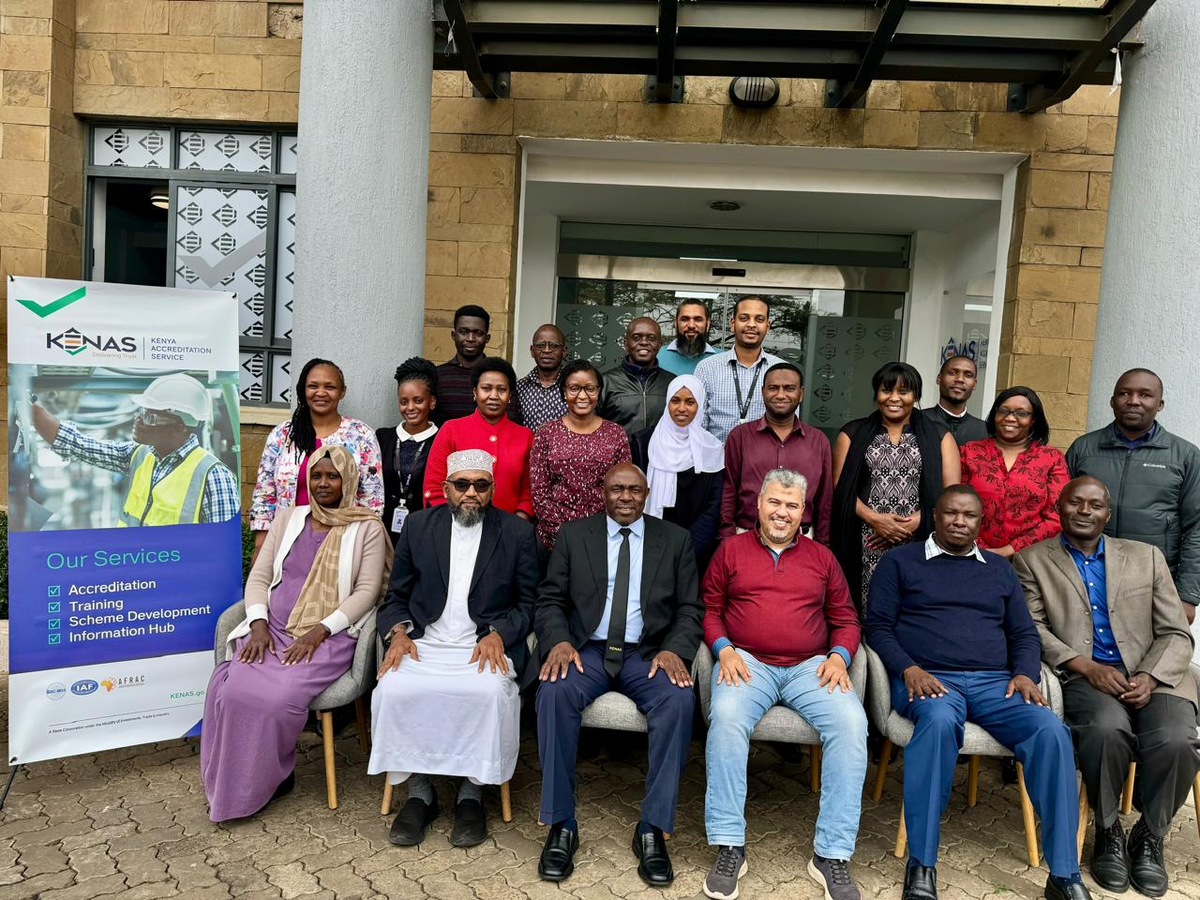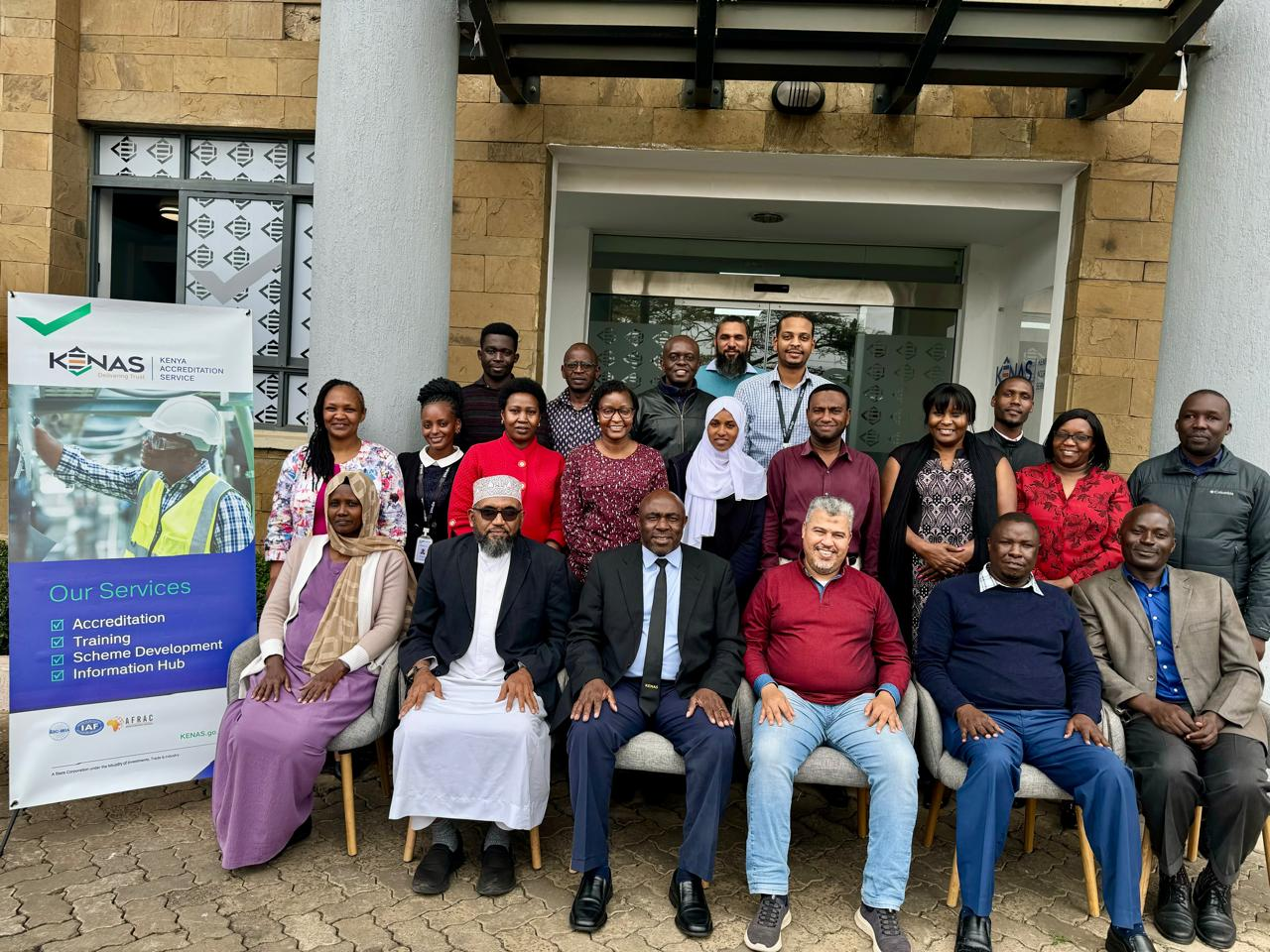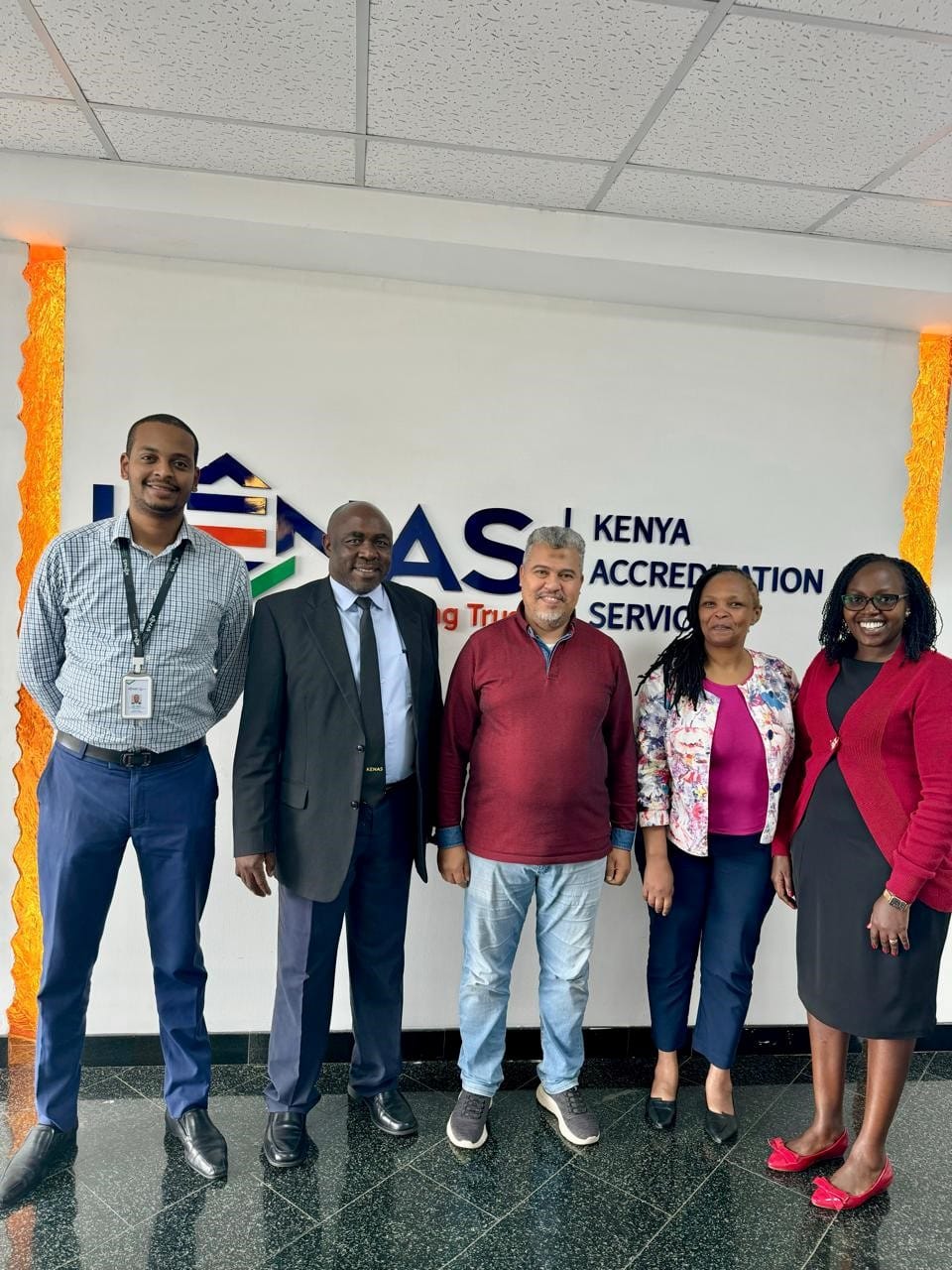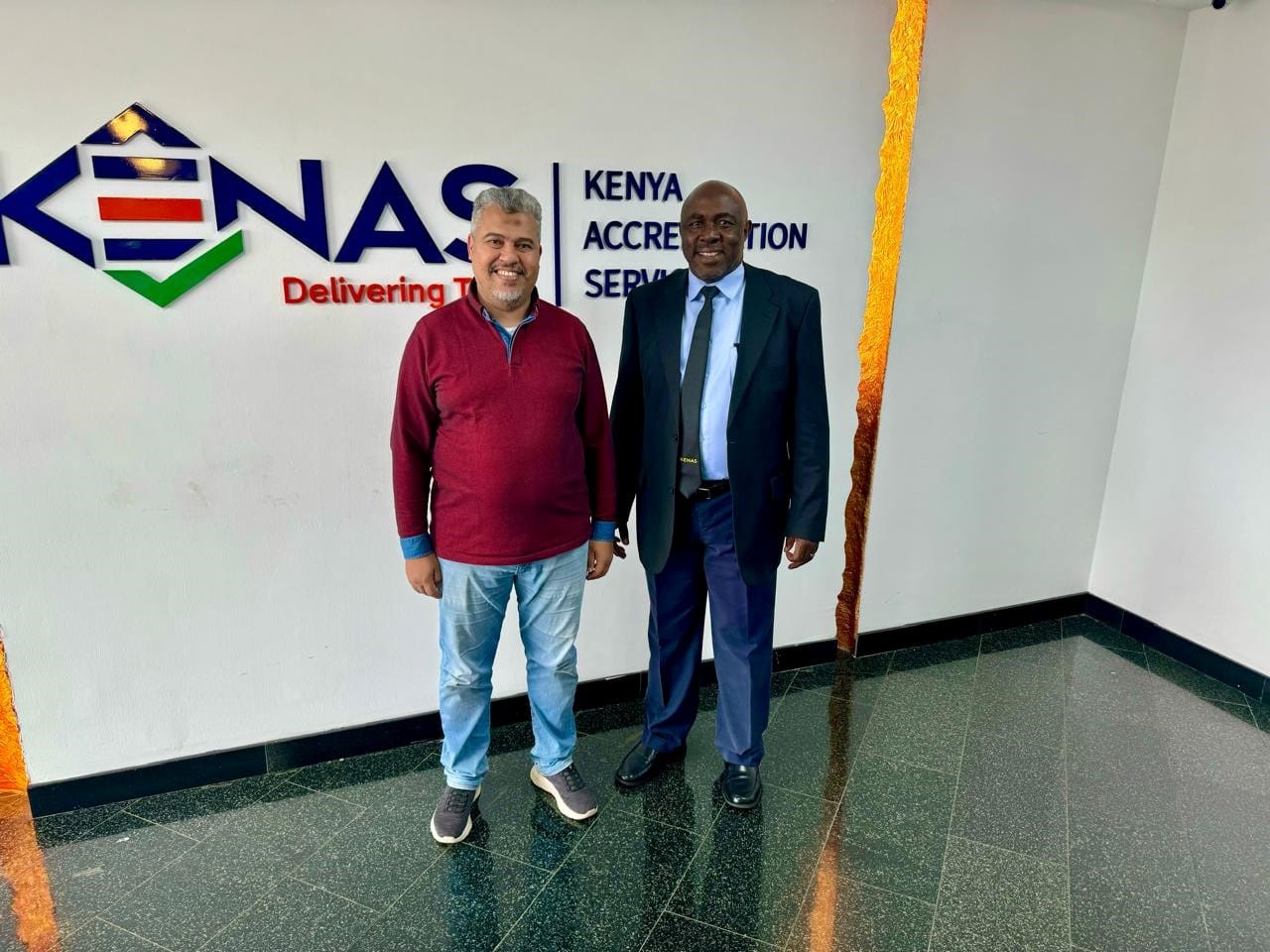The Importance of Halal Certification in Enhancing Domestic and International Trade

As the global demand for Halal-certified products continues to rise, businesses in Kenya have a unique opportunity to tap into a lucrative market that spans the globe. The significance of Halal certification goes far beyond religious observance; it has evolved into a global standard that impacts a broad spectrum of industries, from food and cosmetics to pharmaceuticals and logistics. Recognizing the vital role that Halal certification plays in both domestic and international trade, the Kenya Accreditation Service (KENAS) recently conducted a comprehensive assessor training program to ensure that Halal certification bodies in Kenya meet the highest standards of quality and compliance.
The training, held from September 2nd to 6th, 2024, at the KENAS Training Centre, focused on two key standards: GSO-1:2015 (Halal Food – Part 1: General Requirements) and GSO 2055-2:2021 (Halal Products – Part 2: General Requirements for Halal Certification Bodies). Led by Mr. Mohammed Azroul, a renowned Quality Infrastructure expert from Morocco, the training provided assessors with the expertise needed to ensure that Halal certification processes are rigorous, transparent, and in full compliance with Islamic law.

Figure 1 Mr. Mohammed Azroul, the Moroccan Quality Infrastructure expert seated third from right with the participants of the Halal Certification training
The Role of Halal Certification in Trade
Halal certification is not just about religious practices; it is a quality assurance system that ensures products are safe, hygienic, and produced in accordance with ethical standards. It involves a meticulous assessment process that guarantees food, pharmaceuticals, and other products meet the dietary and ethical requirements prescribed by Islamic law. Halal certification has gained recognition globally, with many countries now requiring Halal certification for imported goods, particularly in markets with large Muslim populations, such as the Middle East, Southeast Asia, and parts of Europe.
For businesses in Kenya, obtaining Halal certification opens doors to these international markets, providing a competitive advantage for Kenyan products. Halal-certified goods are not only trusted by Muslim consumers but are also valued by a growing number of non-Muslim consumers who view the certification as a mark of high quality, safety, and ethical production.

Boosting Domestic and International Trade through Halal Certification
As Kenya strives to increase its participation in global trade, Halal certification represents a strategic advantage in accessing new markets. Products ranging from food and beverages to pharmaceuticals and cosmetics are all subject to scrutiny when entering Muslim-majority countries. Having Halal certification from an accredited body like KENAS ensures that Kenyan products meet the required standards, reducing trade barriers and facilitating smoother entry into these markets.
Domestically, Halal certification also plays a significant role in ensuring that businesses cater to the local Muslim population, which constitutes a significant portion of Kenya's population. It promotes inclusivity and consumer trust, as Muslims can confidently purchase Halal-certified products, knowing that they adhere to the strict requirements of Islamic law. This enhances the reputation of local businesses and can drive economic growth by encouraging more domestic consumption of Halal products.
KENAS: Leading the Way in Halal Certification
KENAS continues to be at the forefront of accreditation services in Kenya, setting the benchmark for quality and competence across various sectors. Our Halal certification scheme, which is fully aligned with international Halal standards, provides a robust framework for ensuring that businesses meet the stringent requirements of Halal certification. Through our rigorous assessment and accreditation processes, we guarantee that Halal certification bodies operate with the highest levels of integrity and transparency.
The recent GSO-1:2015 and GSO 2055-2:2021 assessor training underscores our commitment to upholding these standards. With the knowledge and skills gained from this program, assessors are now better equipped to evaluate Halal certification bodies, ensuring that they meet all necessary requirements. This is a significant step forward in enhancing the quality and credibility of Halal certification in Kenya, ultimately benefiting businesses and consumers alike.

Figure 3 Mr. Mohammed Azroul with KENAS Calibration Laboratories Manager, Mr. Stanslaus Masinza
Halal Certification: A Key Driver of Economic Growth
As Kenya looks to expand its export base and strengthen its position in global trade, Halal certification offers immense potential. The global Halal market is estimated to be worth trillions of dollars, and by aligning with international Halal standards, Kenyan businesses can tap into this growing demand. Sectors such as food and agriculture, cosmetics, pharmaceuticals, and tourism stand to benefit immensely from Halal certification, which can boost exports, attract foreign investment, and drive economic growth.
In addition to our existing Halal certification scheme, KENAS is also developing new schemes that will further enhance the competitiveness of Kenyan businesses. These initiatives will support various industries, helping them to meet international standards and unlock new market opportunities. As we continue to develop and implement these schemes, KENAS remains committed to driving export-led economic progress and access to markets, ultimately promoting the growth of Kenyan businesses through quality, reliable, internationally recognized accreditation services.
Conclusion
Halal certification is no longer just a niche market; it is a critical component of global trade. For businesses in Kenya, obtaining Halal certification through accredited bodies like KENAS not only ensures compliance with Islamic law but also provides a gateway to new markets and consumer bases. As demand for Halal products continues to rise, KENAS is dedicated to supporting businesses in meeting these standards and maximizing their potential in both domestic and international trade.
By fostering trust in Halal-certified products, KENAS is playing a pivotal role in enhancing Kenya’s economic competitiveness. As more businesses embrace Halal certification and other accreditation schemes, the future of Kenya's trade landscape looks promising, with increased opportunities for growth, investment, and sustainable development.
To learn more about KENAS and our Halal certification services, visit our website and discover how your business can benefit from our accreditation programs.



